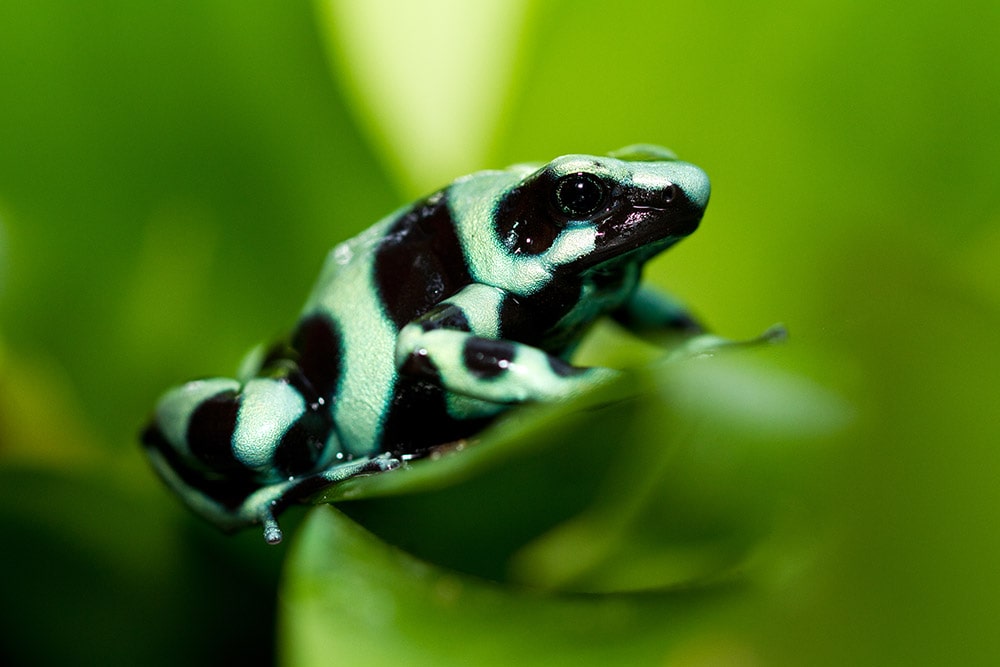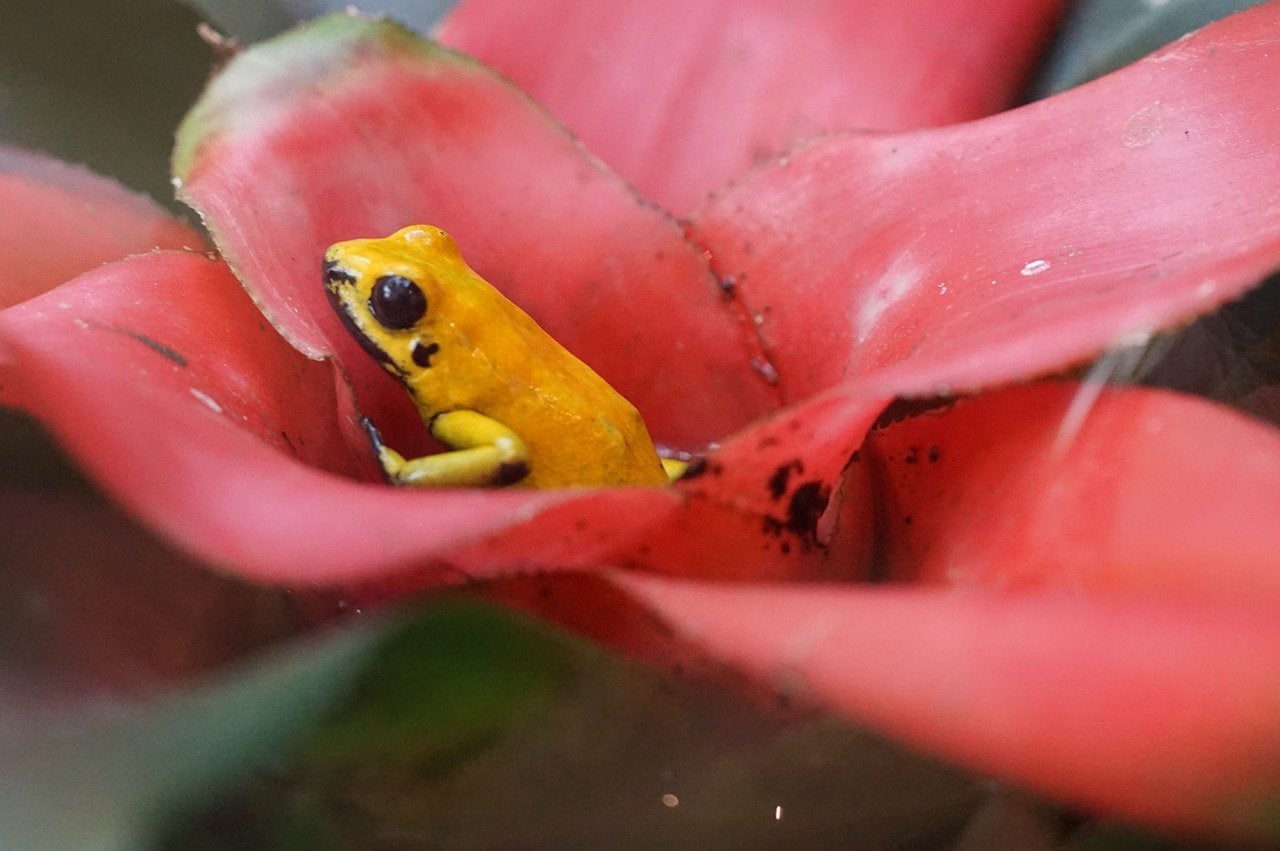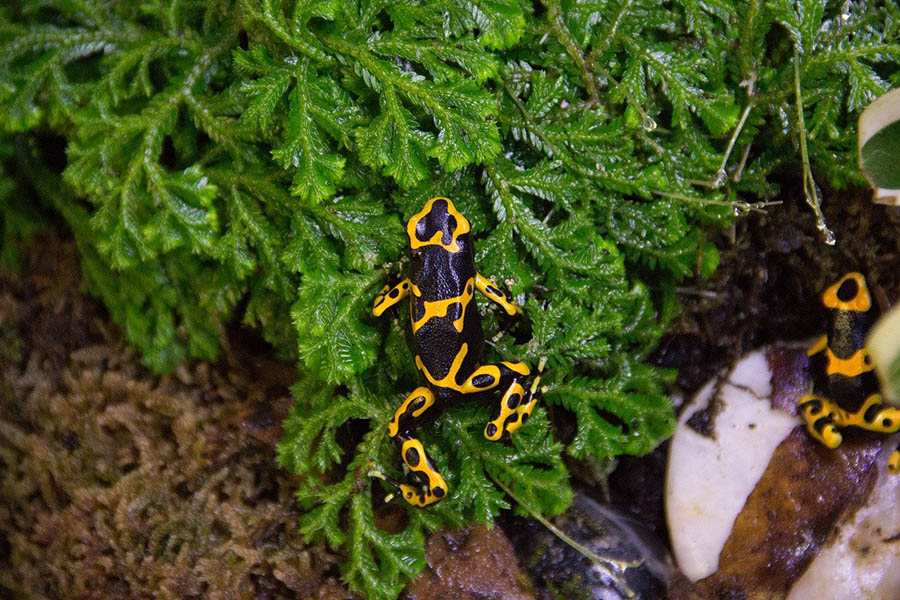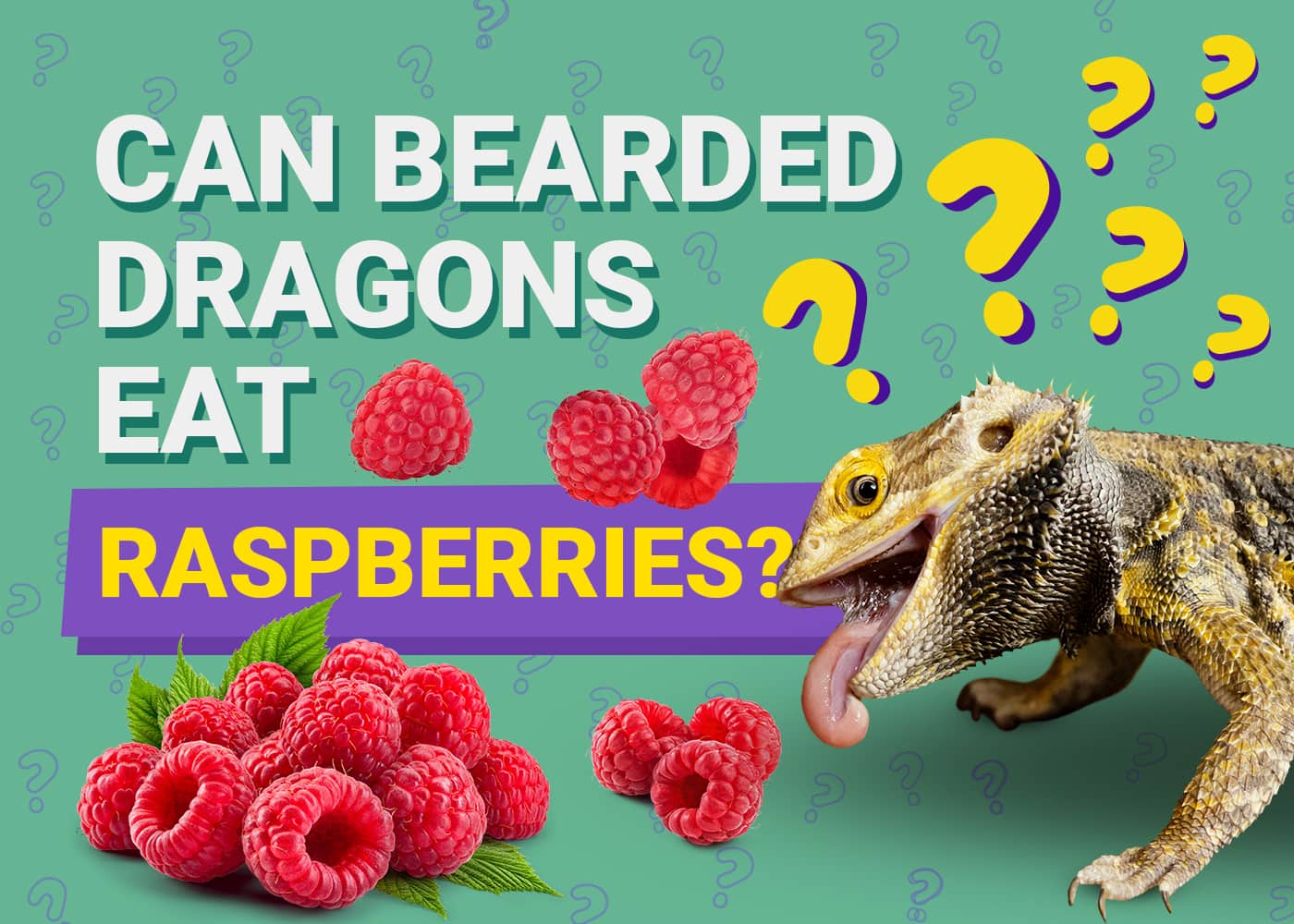VET APPROVED

The information is current and up-to-date in accordance with the latest veterinarian research.
Learn more »Click to Skip Ahead
Native to America, dart frogs are active during the day, have bright and colorful bodies, and can be highly poisonous. Whether a dart frog is poisonous or not depends on what it eats, so pet dart frogs and those kept in zoos will not be poisonous because they will not ingest toxins from other animals.
In the wild, these amphibians eat a variety of insects, including flies and ants. As a pet, they will be fed small insects and arthropods. Feeder animals include fruit flies, flour beetles, and phoenix worms.
Read on for more information on dart frogs, what they eat, and what food you can buy to keep a pet frog happy.

About Poison Dart Frogs
Please note that many species of poison dart frogs have recently experienced habitat loss, diseases, and collection for the pet trade. As a result, they are listed as threatened or endangered.
It is not encouraged to capture a wild frog to be kept as a pet. If you do intend to keep a poison dart frog as a pet, obtain it from a reputable breeder or zoo and ensure that it is legal to own one where you reside. A wild-caught frog will also have a degree of toxicity, depending on their diet. It isn’t possible to tell how long this toxicity will persist after capture.
It is worth noting that adopting a frog isn’t the only way to support species’ struggles. You may be able to participate in programs set up by zoos or wildlife centers designed to revitalize their populations.
The content in this article is for informational purposes only. At PangoVet, we do not encourage adopting poison dart frogs that are captured from the wild, as this disrupts local ecosystems.
Poison dart frogs, or Dendrobatidae, are carnivorous amphibians that live in hot and humid tropical climates like Costa Rica and Brazil. They tend to be very brightly colored, using these colors to deter predators.
Some species of this frog are among the most poisonous and deadly creatures in the world. In particular, the golden poison frog is one of the most poisonous animals on the planet. They get their name from the historical use of the animal’s venom to create poisonous darts, and they are also known as poison arrow frogs for a similar reason.
Their toxicity comes from the insects they eat. They make toxins from ants, mites, and termites, processing them for the internal bioaccumulation of their venom. Some inject their prey with venom when biting, but others secrete the venom from their skin. Frogs born and raised under human care are not toxic or venomous because they never eat venomous sources of food. As such, they are sometimes kept as pet amphibians.

Are Dart Frogs Good Pets?
Although dart frogs are not poisonous when kept as pets and when prevented from eating poisonous prey, they are still best considered hands-off pets. They have delicate skin and can easily become injured if handled too roughly or too often. They also have very specific habitat requirements, which means that you will have to adapt a terrarium or aquarium so that it meets their needs.
A dart frog can make a good pet frog for the right person, though. They are beautiful to look at and easier to spot than some of the more camouflaged species. What’s more, their terrarium itself can be beautiful to look at and fun to maintain. The frog is diurnal, which means that it is active during the day.
There are different species of dart frogs, including those that are small enough to sit on a thumbnail, but the larger dart frogs are considered the better option for novice keepers because they are somewhat hardier than thumbnail dart frogs.
With a typical lifespan of around 3 years, these pets are useful considerations for an experienced pet keeper or zoologist.

What Do Dart Frogs Eat That Make Them Poisonous in the Wild?
In the wild, dart frogs primarily eat insects. Some species eat ants that contain specific chemical compounds that the frog can convert into a toxin. Some of the frogs can then deliver this toxin by biting their prey, while others simply secrete it through their skin, making them very dangerous to handle.
As pets, though, they are not fed toxic insects, which means that they will not be toxic.
Can Dart Frogs Eat Fruit?
Dart frogs eat tiny insects, and they do not eat plant-based material. Whether in the wild or as pets, they will only go after food that moves, so they will not eat fruit. However, you can use fruit to breed your own fruit flies, and many species of dart frogs will eat these.

How Long Can Dart Frogs Go Without Eating?
How often you feed a dart frog depends on its age and its diet, but juveniles usually need to be fed every day, and most keepers feed their adult frogs two or three times a week. If the frog has been well fed, it may be possible to leave it for a week without food, and most species can survive 2 to 3 weeks without eating, although this is not advised.


Conclusion
Poison dart frogs, also known as poison arrow frogs, are intriguing little amphibians that are brightly colored to put off predators. In the wild, the frog will eat a variety of small insects; in most cases, they consume ants, termites, and mites. As pets, the frogs are not venomous because they do not eat the prey that makes them venomous.
The most common food source for a pet dart frog is fruit flies, which can be bought from specialist pet stores or online. Alternatively, you can breed your own fruit fly culture to keep your dart frogs well-fed.
Next on your reading list:
Featured Image Credit: Pixabay










